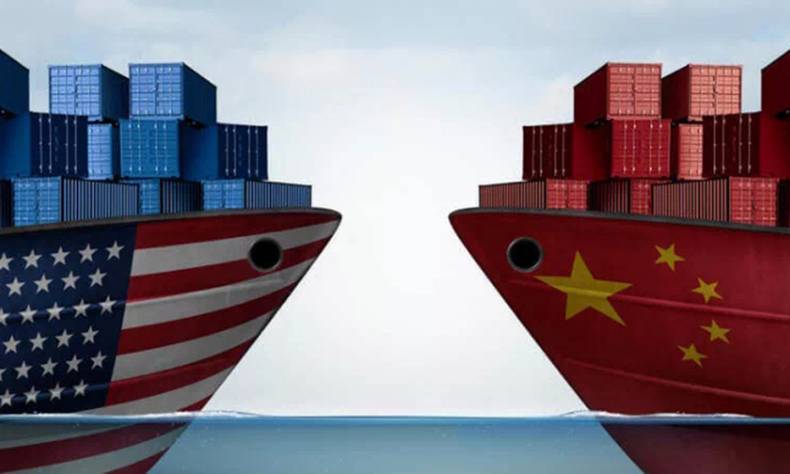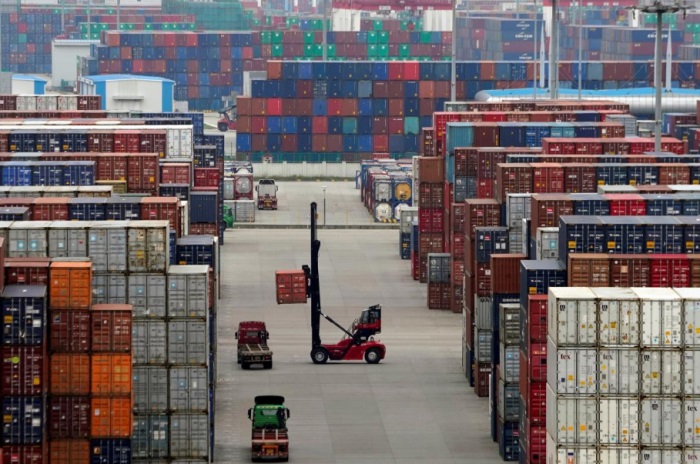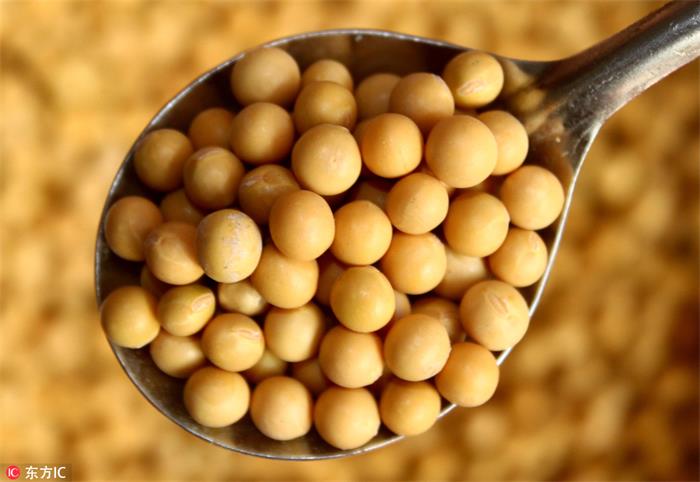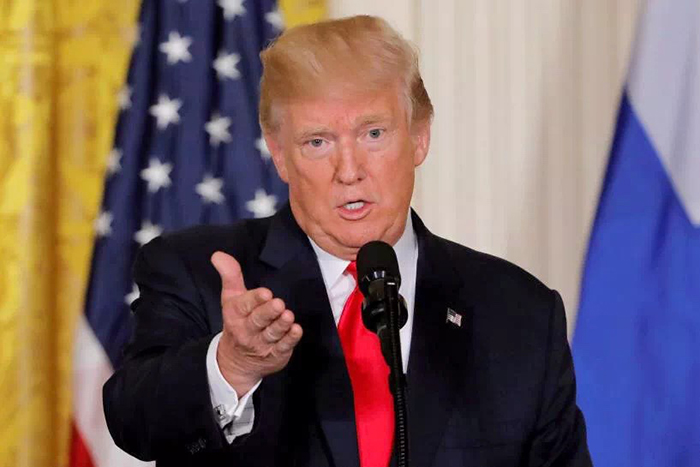
The Unpredictable States of America is Making Trouble Not Only for China, but Also for Itself
It involves the world’s two biggest economies and the trade volume involved also represents a record in decades.
The USTR announced Friday that President Donald Trump had approved 25% tariffs on $50bn worth of Chinese goods, which are products, alleged to be of “significant industrial technologies”, with tariffs on $ 34 billion goods under the first subset taking effect as from July 6, 2018,and those on another $ 16 billion goods under the second subset to take effect undated. From June 15 2018 – the date of announcement that will live in history – a massive trade war targeting China has been launched. It involves the world’s two biggest economies and the trade volume involved also represents a record in decades.
 Δ Containers are seen at the Yangshan Deep Water Port in Shanghai, China April 24, 2018.
Δ Containers are seen at the Yangshan Deep Water Port in Shanghai, China April 24, 2018.
The existing world economic order was set up after WWⅡ with the US as the leading force. The World Trade Organization (WTO) is an essential cornerstone. The organization has kept growing and contributing to world economic development, especially since China joined.Containers are seen at the Yangshan Deep Water Port in Shanghai, China April 24, 2018.
However, a new threat of neo-isolationism arose during the US presidential election in 2016 with Donald Trump as its champion. From campaign to taking office, Trump has repeatedly attempted to compensate for his deficit in public popularity by sowing an image of the US as a “victim” into the public mind. Trump has claimed that the US has been “raped”, “robbed”, “exploited” and “taken advantage of” by other countries under the existing international order. Hence, the US need to re-define its relationship – in fields such as the economy, trade, and security – with the rest of the world.
The US trade war does not target China alone, but even traditional allies including the EU and Japan, and neighboring countries including Canada and Mexico. But in terms of the scale, China is unique.
Economies such as the EU and Canada have already taken counter-measures against the irrational US actions. China’s Ministry of Commerce released a statement in the wake of the US announcement, claiming that China will take immediate counter-measures of equivalent scale and strength against US products.
 ΔChicago Board of Trade futures settled much lower on Monday amid massive selling triggered by concerns
ΔChicago Board of Trade futures settled much lower on Monday amid massive selling triggered by concerns
over trade tensions between China and the United States.[Photo/IC]
The essence of trade is the exchange of necessary goods. It is a reciprocal activity among economies. Both the companies and the people of the US have derived enormous benefit from trade between China and the US. Trump’s increased tariffs on Chinese goods fall under the unwarranted charge of a “301 Investigation”, forcing the mutually-beneficial economic relations between the two countries into a state of hostility. This action is unarguably an open challenge to world trade rules and global interests.
However, the actions of Trump’s government do not represent the will or further the interests of all the US people or any of its industrial giants. Key institutes including the US Chamber of Commerce and the National Association of Manufacturers have united in condemning the counterproductive actions.
US stock, bond and foreign exchange markets have all been fluctuating since February this year, indicating that US economic growth is still beset by enormous uncertainty. The US economy has been generally stable in recent weeks, but with these new prospects of a trade war it will once again come under pressure.
The Chinese government has shown all possible goodwill and sincerity in its trade talks with the US. But in the volatility of in its actions, the US has been acting like the most disorganized government in the world. “USA” is becoming synonymous with “The Unpredictable States of America”. A capricious US government is making trouble not only for China, for the world, but also for itself.
By Lyu Xiang, expert on US issues, Chinese Academy of Social Sciences, China Association of International Trade
Editor: Cai Hairuo
Opinion articles reflect the views of their authors, not necessarily those of China Focus
 Facebook
Facebook
 Twitter
Twitter
 Linkedin
Linkedin
 Google +
Google +











